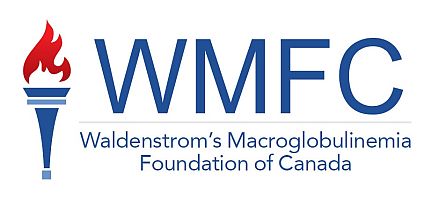Tips for living with WM
Because WM is typically an indolent (slow-growing) cancer, it is possible to achieve a good quality of life for long periods while living with the disease. The following links contain useful suggestions, to support WM patients physically and emotionally and to improve their overall health.
The Canadian Cancer Society provides information intended to help cancer survivors make informed choices related to nutrition and physical activity.
- There are no special diets or dietary substances that can be used to treat WM. Instead, follow recommended guidelines for optimal health, including a healthy balanced diet, high in fruits, vegetables, and whole grains and low in fatty foods and red meat.
- Adopt a regular program of exercise in keeping with your abilities and in consultation with your physician.
- Make sure that you receive the appropriate vaccinations. The responsibility for the administration of these vaccines is shared between your oncologist and your primary care provider.
Information regarding vaccines can also be found at the Canadian Cancer Society website.
- Key points are live vaccines are not indicated due to the risk of severe vaccine-induced infections. Influenza shots should be given annually and both pneumococcal vaccines should be administered according to a recommended schedule. The newer Shingrix vaccine for zoster (shingles) is the safer and preferred one over the older Zostavax vaccine.
If you are investigating the use of complementary and alternative medicine as an adjunct to conventional treatment, be cautious. While general-purpose multivitamin should be safe, mega-vitamins, over-the-counter medications, and so-called health food remedies should always be discussed with your physician. Some of these substances may alter the effectiveness of conventional treatment for the disease or may worsen certain side effects from treatment.
Make sure that your caregiver has as much knowledge about your condition as you do. Particularly, at times of treatment, you may become stressed and fatigued or experience other side effects, and your caregiver is your lifeline to obtaining help and communicating with your healthcare team, especially in emergency situations.
Attend the annual WMFC Education Forum (Education-WMFC Education Forum). and ask questions of the medical presenters. Go to the breakout sessions and spend time with other WM patients at the Forums to learn how they are doing.
Find a local or virtual WMFC Support Group (hot button) and attend meetings as regularly as you can. Support Groups can offer a wealth of information and the opportunity to network with other patients who are going through the same experiences as you are.
Download publications from the (IWMF) website, or if newly diagnosed go here.
In addition to maintaining healthy lifestyle habits and educating yourself about WM, you should establish good communication with your healthcare team. There may be times when you would like to have a second opinion, particularly if you are considering different treatment options. Tips on communicating with your healthcare team and information about obtaining a second opinion can be found at these links.
Access to your personal health information is critical to ensure that you receive timely, safe, and effective care and treatment. You are entitled to your medical records and you may want them for your own use as an aid to keep track of your health status. Many provinces/hospitals now have portals where you can access your medical records online.
A cancer diagnosis can be especially difficult when it occurs while you are still working or if you are attempting to find a job or change careers. Just a few of the important issues to consider include how to share your diagnosis with your employer and your co-workers, how your treatment could affect your job performance, your legal and financial rights in the workplace, and how you can adjust your work schedule and reduce stress during treatment. For helpful information on these and other aspects of dealing with cancer while working, visit www.cancerandwork.ca
There is no question that a cancer diagnosis is a challenging experience. It is important to work through your feelings about cancer because how you feel can affect how you look at yourself, how you view life, and what decisions you make about treatment. There are many websites and blogs to help cancer patients deal with the diagnosis and the effects of treatment.
- The Canadian Cancer Society offers a variety of information and support services to Canadian cancer patients and their families including financial and transportation support.
- Lymphoma Canada is another important resource for WM patients offering education and support to patients and caregivers.
- The Leukemia and Lymphoma Society of Canada also provides information and support services to patients and caregivers with blood cancers.
- Wellspring Canada has in-person and online programs to meet the psychological, emotional and educational needs of individuals and families living with cancer in Canada.
- The Leukemia and Lymphoma Society (US) has free downloadable publications, including “Healthy Living” and “Pain Management”, along with specifics for individual cancer types (note there will be a US bias in treatment discussions, here).
Sources of Support (Not WM-specific)
WM Education Forums
WMFC Educational Forums and IWMF Educational forums are unique annual opportunities for patients and caregivers to come together to learn about WM from world-renowned specialists. Speakers are selected for their ability to explain WM in terms that laypeople understand. Presentations are recorded and made available on the WMFC website. These information-packed events are held at different locations across Canada and the U.S., or virtually.
